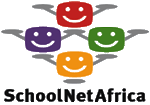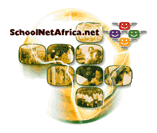Benchmark and Indicators on Education and ICTs
Over the past few years, there has been much discussion on the need to have Benchmarks and Indicators of success and failure in the way we conduct our work, projects and programs on education through the use of ICTs in general and in Africa in particular. The recent World Summit on the Information Society (WSIS) in Geneva on 10-12 December 2003 highlighted the need for effective monitoring and evaluation tools on the performance of ICT for Development programs, particularly in the education sector.
SchoolNet Africa is committed to developing work on this area. With support from the International Institute for Communication and Development (IICD), SchoolNet Africa has commenced research on Benchmarks and Indicators by conducting an overview of e-readiness assessments and bench-marking tools which are available below. SchoolNet Africa’s work in this area is ongoing. The content on this section of the Knowledge Warehouse will be developed continuously.
What are Indicators?
Efforts to integrate ICT in education are widespread globally, although the results of such efforts may only become measurable years from now. It is also important to measure results at points during implementation of the programme as well as the impact at the end of the programme. Determining the impact of ICTs as they are introduced can be done through the use of indicators or criteria.
Indicators are statistics that are used as evidence in order to measure or evaluate materials, methods, interventions, programmes and projects. They define concepts in terms of the measurements and data it is possible to collect and analyse. The indicators to be used define what data to collect and at what time intervals.
Why are Indicators important?
Due to the increasing prevalence and use of ICT, there becomes a need to develop performance indicators to monitor the use and outcomes of technologies and to demonstrate accountability to funding sources and the public. The information that indicators provide is also useful for responding to challenges that may arise.
The relationships between technology use and educational development, empowerment of teachers, changes in teaching and learning processes and student learning are demonstrated through the use of indicators. It is important to note that using technology is not an end in itself, but a means to promote educational outcomes, creativity, empowerment of learners and teachers, and the development of resourceful learners and problem solvers. In order to assess these outcomes, appropriate measurement tools and indicators are needed.
Adapted from: UNESCO
Content on Indicators and Benchmarks are organised in the following categories:


